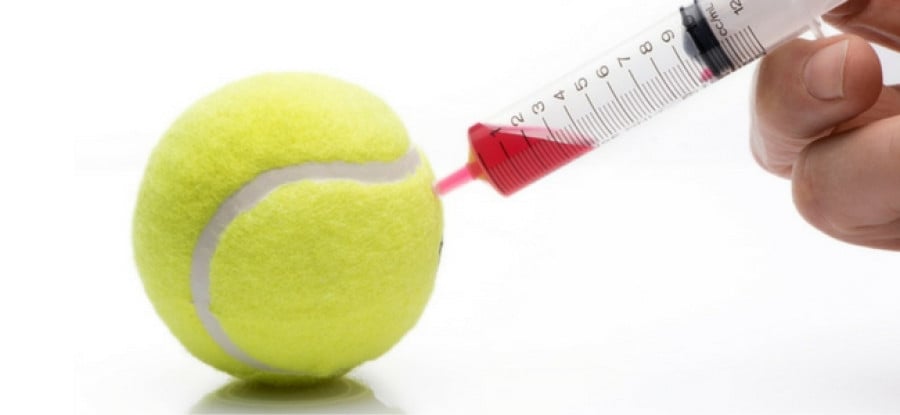A review of the CAS panel's decision to reduce Sharapova’s doping ban

The author’s previous LawInSport article covered the decision of the first instance International Tennis Federation ("ITF") Tribunal in the case of five-time major winner, Maria Sharapova. In it, the author discussed Sharapova’s prospects on appeal of securing a reduction in the two-year ban that the Tribunal imposed on her.1 At the time, it was the author’s view that "CAS [the Court of Arbitration for Sport]'s findings on the facts will need to be very different if Sharapova is to obtain any reduction in her sanction" and that "it would be surprising if even a sympathetic CAS panel brought the sanction down to anything below 18 months".
CAS's eventual decision, the headline result of which was a reduction in sanction from two years to 15 months, therefore undeniably merits further analysis.2 In the aftermath of the decision, Sharapova's lawyer described it as a "stunning repudiation of the ITF and it exposes the ITF decision for what it is: pure fiction".3 Meanwhile, the ITF rejected criticism4 of the original ITF Tribunal, including any suggestion that it had been "not neutral", while also standing by the way in which it had publicised the inclusion of Meldonium (the substance for which Sharapova tested positive) on WADA's Prohibited List from January 20165.
Accordingly, this article examines:
- The context of the CAS decision – a brief run through of the facts and the grounds of Sharapova’s appeal;
- The CAS decision – the Panel’s findings in relation to Sharapova’s appeal for a reduction in her sentence on the grounds that she bore “No Significant Fault or Negligence” (see below) for her violation.
- Comment – was it right for CAS to conclude that Sharapova’s choice of delegate (Mr Eisenbud) was reasonable and that she demonstrated "No Significant Fault or Negligence”; was it proportionate for CAS to reduce Sharapova’s ban by 9 months (from 24 to 15 months) in the circumstances?
The context of the CAS decision
At the outset, it is important to note that both the ITF Tribunal and CAS found that Sharapova had not committed an “intentional” anti-doping rule violation.6 The Tennis Anti-Doping Programme ("TADP") states at Article 10.2.3 that the term "intentional" refers to a player who has engaged in conduct that he/she knew constituted an anti-doping rule violation or knew there was a significant risk that this might be the case and "manifestly disregarded" that risk. This issue was concluded at first instance by the ITF's acceptance of Sharapova's assertion that she did not believe Mildronate (the name of the product in which Meldonium is contained) was a prohibited substance. This was reiterated by the CAS panel, which was at pains to make clear that "under no circumstances, therefore, can the Player be considered an “intentional doper". As such, the maximum sanction that could apply to her case was two years.7
The factual background to the matter is set out in more detail in the author’s first article.8 By way of reminder, Sharapova had provided two positive samples for Meldonium in January 2016, shortly after the substance had been added to the Prohibited List (being classified as a non-specified substance). These samples constituted an anti-doping rule violation under Article 2.1 of the TADP. The player's results from the Australian Open, during which the doping control test took place, were disqualified and, as noted above, the ITF Tribunal imposed a two-year sanction under Article 10.2 of the TADP.
In her appeal, Sharapova accepted that she bore some degree of fault and therefore did not plead a defence of "No Fault or Negligence" under Article 10.4 of the TADP. However, Sharapova sought to avail herself of the “No Significant Fault or Negligence” provision under Article 10.5.2 of the TADP and that, as a result, her ban should be reduced. That provision allows for a reduction up to 50% of the ban otherwise applicable. Moreover, Sharapova asked the Panel to exercise a further discretion to reduce the ban to an even shorter period, "consistent with the principle of proportionality".9
The decision
CAS accepted jurisdiction to hear Sharapova's case pursuant to the appeal provisions at Article 12 of the TADP. Importantly, and as is well known under Article R57 of CAS's procedural rules, the appeal panel therefore had "full power to review the facts and the law", meaning that Sharapova's case could effectively be heard de novo.10 The panel alluded to and indicated its acceptance of the statement in WADA v Hardy & USADA11 that "the measure of the sanction imposed by a disciplinary body in the exercise of the discretion allowed by the relevant rules can be reviewed only when the sanction is evidently and grossly disproportionate to the offence" (emphasis added).12 However, the panel went on to say that, despite the high threshold this appears to imply, it in fact only means that a panel "would not easily tinker with a well-reasoned sanction". In Sharapova's case, the panel concluded that the ITF Tribunal had wrongly classified Sharapova's level of fault as significant. It is to be inferred that the panel therefore believed that the sanction could not be "well-reasoned".
To continue reading or watching login or register here
Already a member? Sign in
Get access to all of the expert analysis and commentary at LawInSport including articles, webinars, conference videos and podcast transcripts. Find out more here.
- Tags: Anti-Doping | Australian Open | Court of Arbitration for Sport (CAS) | Dispute Resolution | International Tennis Federation (ITF) | ITF Anti-Doping Tribunal | Russia | Tennis | Tennis Anti-Doping Programme | WADA Code 2015 | WADA Prohibited List | Wimbledon | Womens Tennis Association (WTA) | World Anti-Doping Agency (WADA)
Related Articles
- Maria Sharapova: Key facts of the ITF doping decision and her chances on appeal
- The Court of Arbitration for Sport (CAS) reduces the ban of Maria Sharapova to fifteen months
- The future of anti-doping: Interview with CAS arbitrator & former General Counsel, USOC - Episode 39
- WADA Talks with Travis Tygart
Written by
Tom Rudkin
Partner - Farrer & Co
Tom provides reputation management and contentious media advice to the full range of Farrer & Co's clients. He is a member of the firm's Sports Group and, as well as assisting sports clients on reputational, media and other sensitive issues, he advises on sports-based disputes, rules and regulations and commercial contracts. Tom's work spans from advising National Governing Bodies to high profile sportsmen and women. He has also spent time in-house on secondment at the Lawn Tennis Association.

 Global Summit 2024
Global Summit 2024